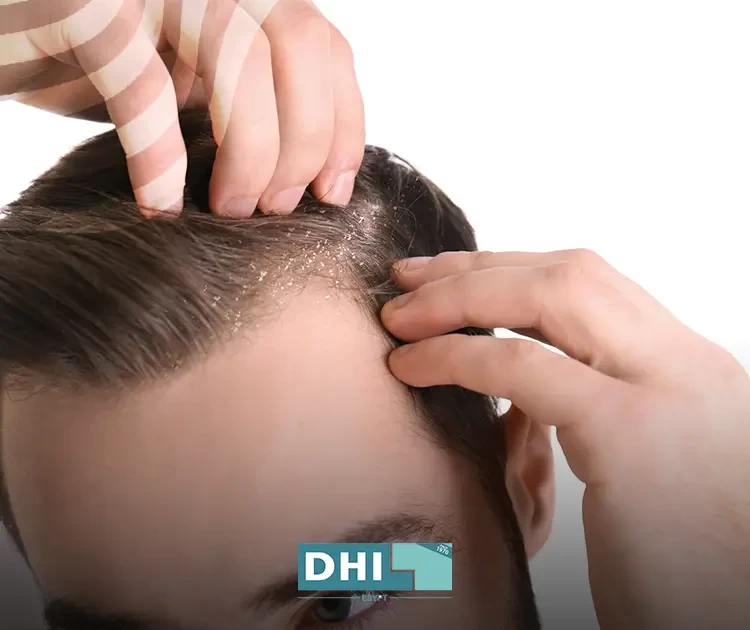Undergoing a hair transplant can be an exciting thing because it will restore hair growth on your scalp. However, as with any type of surgery, there are some minor side effects to hair transplant procedures.
One of those complications that patients worry about is itching after hair transplant procedures or the appearance of pimples in the donor area after a hair transplant.
Is itching after a hair transplant normal?
After a hair transplant procedure, you may experience itching in the transplanted area, or you may notice the appearance of pimples in the donor area after hair transplantation. Itching is considered a natural part of the healing process. Itchiness usually arises due to dryness, and it may develop in the hair grafts as they continue to grow.
Causes of scalp itching after hair transplant
During the hair transplant procedure, the surgeon creates small holes to extract and implant hair follicles. These small holes are minor wounds that need to heal naturally. As they heal, the tiny wounds on the scalp appear covered with dried blood and other fluids that contribute to the healing process.
At this stage, histamine is released from the scalp, causing itching as a natural part of the hair transplant process. The use of inappropriate shampoo may also be a cause of scalp itching after hair transplantation.
How long does itching last after a hair transplant?
Itching after DHI hair transplantation typically lasts between 1 and 4 weeks. In rare cases, it may persist for up to four weeks until the itching completely disappears. The itching on the scalp may be particularly pronounced in the first few days after transplantation, especially when you cannot wash the top of your head, but after the first wash of the transplanted area, the itching gradually subsides.
How to treat itching of the head after hair transplant
Treatment for scalp itching after hair transplantation includes several basic steps:
- Avoid scratching the bumps.
- Use a saline spray.
- Take antihistamines.
- Medicated shampoo.
- Cortisone scalp solution.
Avoid scratching the scalp
Although the feeling of itching makes the person scratch their scalp hard, this natural behavior can cause you to get infected or inflamed hair follicles and thus ultimately affect the result of the transplant.
Use a salt and water spray.
Doctors recommend not washing the transplanted hair for 4 or 5 days after the operation, and instead using a saline solution spray to clean the scalp and protect it from dryness that may increase itching, as this spray works to soothe the scalp and contributes to the treatment of itching of the head after a hair transplant.
Take antihistamines.
Antihistamines can be taken, which cause the feeling of itching as part of the treatment of itching of the head after a hair transplant, and once the histamine secretion in the scalp decreases, you will feel much less itching than before.
Also Know; How to transplant head hair
heavy lifting after hair transplant
Use medicated shampoo
By following the previous methods for treating itching of the head after a hair transplant, and for more comfort, you can use a medicated shampoo according to the doctor's instructions. The shampoo helps protect against infection and soothe itching by being used twice a week.
Cortisone scalp solution
In the few cases that suffer from itching for a long time after the transplant, it is recommended to use a cortisone solution for the head, which will reduce inflammation in the scalp.
How can I prevent itching of the head after a hair transplant?
Of course, the first way to prevent itching of the head after a hair transplant is to follow the doctor's instructions, which include:
- Avoid smoking and alcohol completely for a few weeks before and after surgery.
- Avoid direct exposure to the sun, as it may increase itching.
- Avoid wearing a hat made of fabrics that cause irritation.
- Avoid excessive sweating if it may cause scalp irritation, especially when it dries.
- Drinking plenty of water keeps the skin hydrated, which may reduce itching.
In conclusion, hair transplant surgery may cause itching of the scalp due to the healing process and the release of histamine. However, this condition is temporary and natural in most cases. If the itching persists or worsens, it is best to consult a doctor to assess the situation accurately and direct you to the appropriate treatment.
If you are looking for the exceptional hair transplant experience with DHI technique in Egypt, do not hesitate to contact us. We are here to achieve your dream and restore your self-confidence. Book your appointment now.

